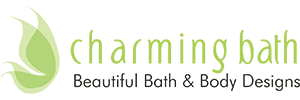
What Is Natural, Organic, And Vegan&cruelty-free?
2022-08-13 16:15Cosmetics and personal care products are often marked with organic, natural, cruelty-free, and vegan on the labels. These concepts have been popular for a long time and definitely will be a trend.
But can you distinguish them? What do they mean? These are the questions we seek to answer in this article.
Natural
As the name suggests, it refers to cosmetics made from ingredients extracted from natural plant extracts.
However, there is no government or law to regulate natural cosmetics. Fortunately, some certification bodies have tried to give definitions. Here, the definition of Natural Products Association(NPA) is quoted, there are four aspects:
“Natural Ingredients: A product labeled “natural” should be made up of only, or at least almost only, natural ingredients and be manufactured with appropriate processes to maintain ingredient purity.”
“Safety: A product labeled “natural” should avoid any ingredient with a suspected human health risk.”
“Responsibility: A product labeled “natural” should use no animal testing in its development.”
“Sustainability: A product labeled “natural” should use biodegradable ingredients and the most environmentally sensitive packaging. “
organic
In short, it refers to cosmetics containing organic certified plant ingredients, which requires that the plant ingredients contained in their products must be derived from “organic plants”, and organic plants must grow on organically certified farms or plantations.
The definitions of organic in the world are very similar. They must meet the following conditions:
The organic environment, which is closest to the natural growth mode, has grown, the production base (i.e. environment) has not been damaged, and the irrigation water), soil, and air have not been polluted.
Organic planting, no artificial chemical fertilizer irrigation or artificial feed feeding, no antibiotics, chemical insecticides, and no genetic variants.
Organic processing and production projects (including washing, sorting, packaging, processing, transportation, storage, sales, and other links after harvest) are not subject to secondary pollution.
The organic certification of international standards needs to be reviewed by a third-party certification organization every year from planting, processing, production, manufacturing to finished product wholesale.
Vegan&cruelty-free
Strictly speaking, vegan and animal-free testing are separate, but some third-party certification agencies often merge them. Here for convenience, we also put them together.
These product does not contain animal-derived ingredients or animal by-products and has not been tested on animals.
It is concerned with whether there are animal ingredients, therefore, it may contain chemical substances or artificial ingredients. It describes the ingredients, not the production process.
Some Thoughts
For normal consumers, it seems difficult to identify whether a product is natural and organic, the only reliable way is to check the ingredient list, but INCI is too professional. So reliable certification labels will play a big role.
More and more people are interested in organic/nature, but due to the high prices and strict standards, consumers and brand owners are not very happy to accept them. And, are they safe? For example, some natural essential oil is more corrosive.
But we believe that with the development of technology, there will be more and more natural&organic ingredients for options.
Sustainability is easier to achieve and more driving than natural organic. For example, with green chemistry and degradable packaging, PCR bottles have become popular.
